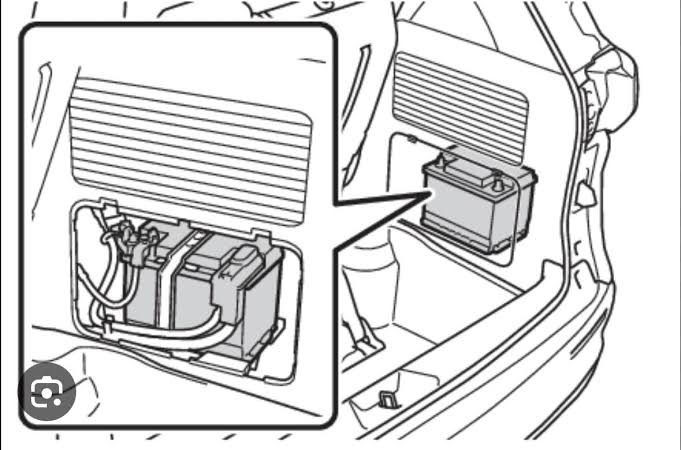All About the Toyota Camry Car Battery
The Toyota Camry, one of the best-selling sedans globally, is renowned for its reliability, efficiency, and comfort. However, like all vehicles, it relies heavily on a well-functioning car battery to power its electrical components and start the engine. This article will provide an in-depth look at the Toyota Camry car battery, including its specifications, how to maintain it, when to replace it, and tips for choosing the right battery for your Camry.
Understanding the Toyota Camry Car Battery
The car battery is a crucial component in your Toyota Camry, as it powers everything from the engine starter to the electronic accessories when the engine is off. The typical Toyota Camry uses a 12-volt lead-acid battery, which is standard for most gasoline-powered vehicles. These batteries are designed to provide a high burst of energy needed to start the engine and then supply a steady stream of power to support the electrical system.
Types of Batteries Suitable for the Toyota Camry
There are several types of batteries suitable for the Toyota Camry:
- Lead-Acid Batteries: These are the most common and affordable type, featuring a simple design and reliability.
- Absorbent Glass Mat (AGM) Batteries: These are a step up from traditional lead-acid batteries, offering better performance and durability, especially in vehicles with advanced electrical systems and start-stop technology.
- Lithium-Ion Batteries: Though less common and more expensive, these batteries are lightweight and offer superior energy density and longevity.
Key Specifications for the Toyota Camry Battery
When selecting a new battery for your Toyota Camry, it’s essential to consider specific specifications to ensure compatibility and optimal performance. Here are the key factors to look for:
Battery Group Size
The battery group size refers to the dimensions of the battery case as well as the orientation of the terminals. The Toyota Camry typically uses a Group 35 battery, but it’s always best to check your owner’s manual for the exact specifications.
Cold Cranking Amps (CCA)
CCA measures the battery’s ability to start an engine in cold temperatures. For the Toyota Camry, a battery with a CCA rating of around 600-700 is usually sufficient, providing reliable performance even in cold weather conditions.
Reserve Capacity (RC)
RC indicates how long the battery can supply power if the alternator fails. A higher RC means more extended power availability. For the Camry, look for a battery with a reserve capacity of at least 100 minutes.
How to Maintain Your Toyota Camry Car Battery
Maintaining your car battery is essential for ensuring long life and consistent performance. Here are some tips to keep your Toyota Camry battery in top shape:
Regular Inspections
Regularly inspect your battery for any signs of corrosion on the terminals, cracks in the case, or other visible damage. Clean any corrosion with a mixture of baking soda and water, using a wire brush if necessary.
Keep It Charged
Ensure your battery stays adequately charged. If you often take short trips or leave your car idle for extended periods, consider using a trickle charger to maintain the battery charge.
Check Fluid Levels
For traditional lead-acid batteries, check the electrolyte levels periodically. If the levels are low, top them off with distilled water. However, most modern batteries are sealed and maintenance-free.
Avoid Extreme Temperatures
Extreme temperatures can significantly impact battery life. Whenever possible, park your car in a garage or shaded area during hot weather and avoid leaving it outside in freezing conditions for extended periods.
When to Replace Your Toyota Camry Battery
Knowing when to replace your car battery can prevent unexpected breakdowns and ensure your Camry runs smoothly. Here are some signs that it might be time for a new battery:
Slow Engine Crank
If you notice that your engine is cranking slower than usual when starting, it could be a sign that your battery is losing its ability to hold a charge.
Check Engine Light
In some cases, a failing battery can trigger the check engine light. If this light comes on, it’s best to have your battery and electrical system checked by a professional.
Swollen Battery Case
A swollen or bloated battery case can indicate excessive heat or overcharging, both of which can shorten battery life. If you see this, it’s time to replace the battery.
Age of the Battery
Car batteries typically last between three to five years. If your battery is nearing the end of this lifespan, it’s wise to proactively replace it to avoid potential issues.
Choosing the Right Battery for Your Toyota Camry
When it’s time to replace your battery, choosing the right one is crucial. Here’s how to ensure you make the best choice:
Consult Your Owner’s Manual
Your owner’s manual will provide the exact specifications needed for a replacement battery, including group size, CCA, and RC ratings.
Consider Quality and Brand
Invest in a high-quality battery from a reputable brand. Well-known brands like Optima, DieHard, and Bosch are known for their reliability and performance.
Warranty
Look for a battery that comes with a solid warranty. This can give you peace of mind and protection in case of any defects or early failure.
Conclusion
The car battery is a vital component of your Toyota Camry, essential for starting the engine and powering the vehicle’s electrical systems. Regular maintenance, timely replacement, and choosing the right battery can ensure your Camry remains reliable and efficient. By understanding your battery’s specifications and monitoring its condition, you can avoid unexpected breakdowns and enjoy a smooth driving experience.




Post Comment